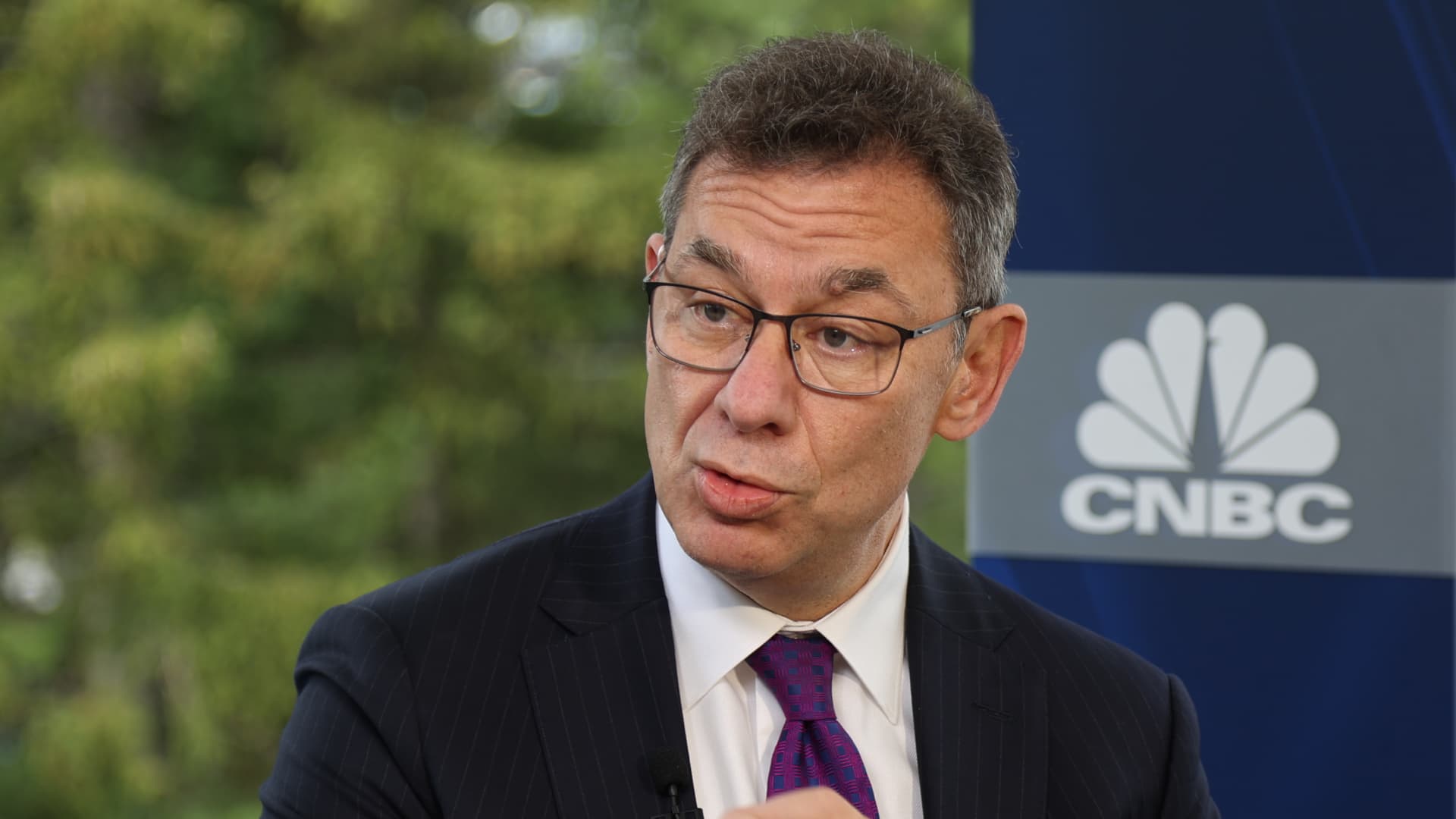Pfizer CEO says he ‘wouldn’t worry much’ about monkeypox; cuts drug prices for low-income countries

Albert Bourla, Pfizer CEO, at the WEF in Davos, Switzerland on May 25th, 2022.
Adam Galici | CNBC
Pfizer‘s CEO said Wednesday that he “wouldn’t worry much” about a recent monkeypox outbreak that has seen cases surge in non-endemic countries.
Albert Bourla told CNBC that current data on the disease suggests it doesn’t transmit as easily as other viruses, such as Covid-19, and that it is unlikely to lead to a pandemic.
“I don’t have all the information ahead of me. With everything I know, I wouldn’t worry much,” he said at the World Economic Forum in Davos.
“That doesn’t mean that we should relax,” however, he continued. “I think we should monitor where the situation goes.”
Monkeypox is a rare viral infection that is endemic to Central and West Africa. It spreads through close contact with people, animals or material infected with the virus, with symptoms including rashes, fever, headaches, muscle ache, swelling and backpain.
While most cases are mild, typically resolving within two to four weeks, health experts have been baffled by the recent spike in countries with no history of the disease and patients with no travel links to endemic countries.
As of Wednesday, at least 237 confirmed and suspected cases of monkeypox had been reported in countries outside of Africa, including in the United Arab Emirates — the first gulf state to report a case.
Bourla noted that the availability of existing treatments present reason for optimism. Smallpox vaccinations have proven 85% effective against monkeypox, and already France and Denmark are considering targeted vaccination campaigns for those most at risk of transmitting the disease.
World’s poorest countries to receive medicines at cost
In a separate announcement Wednesday, Pfizer said that it would make all of its patented medicines available at a not-for-profit price for the world’s poorest countries.
“45 countries, 1.2 billion people will get all our patented products at cost,” said Bourla .
The pharmaceutical giant said the plan covers 23 wholly-owned, patented medicines and vaccines for infectious diseases, certain cancers and some other rare and infectious diseases.
The portfolio of drugs includes Pfizer’s Covid-19 vaccine, Comirnaty, developed with BioNTech, which Bourla said would be of immediate use.
Also included in the list are the company’s Covid-19 treatment Paxlovid and breast cancer drug Ibrance, as well as pneumonia vaccine Prevnar 13, rheumatoid arthritis drug Xeljanz and cancer treatments Xalkori and Inlyta.
Further medicines and vaccines will be added to list as they are launched.
Through the program, Pfizer said it aims to improve the ease and speed of access to vital medicines for poorer nations.
Bourla said it realizes the company’s goal, set out when he took over in 2019, to “reduce by 50% the number of people on the planet that cannot afford their medicine” by 2023.
“Today we are going to achieve that,” he said, adding that shareholders “should think that we are doing the right thing.”
Addressing Covid-19 shortfalls
According to the Bill & Melinda Gates Foundation, it can typically take four to seven years longer for new treatments to become available in low-income countries than in advanced economies — if they become available at all.
Twenty-seven low-income and 18 lower-income countries spanning most of Africa and much of Southeast Asia will be included in the scheme, dubbed “an accord for a healthier world.”
27 low-income and 18 lower-income countries spanning most of Africa and much of Southeast Asia will be included in Pfizer’s program, dubbed “an accord for a healthier world.”
Xinhua News Agency | Xinhua News Agency | Getty Images
The drug company was previously criticized for its rollout of its Covid-19 vaccine and refusal to waive intellectual property rights for the shot even as some poorer countries were left waiting months for their first doses.
Bourla said the new scheme had been informed by some of those shortfalls, and would offer greater support both in terms of delivery of medicines and implementation of treatments.
“The countries were not ready to receive vaccines,” he said of the Comirnaty rollout.
“They were not in a position to organize vaccination campaigns and actually there was hesitancy in these countries. What we should worry about is creating medical infrastructure in these countries so that they can do vaccinations,” he said.
Checkout latest world news below links :
World News || Latest News || U.S. News
Source link



